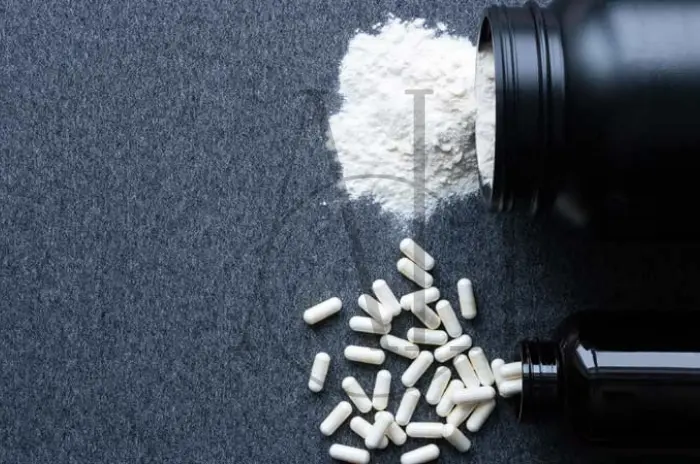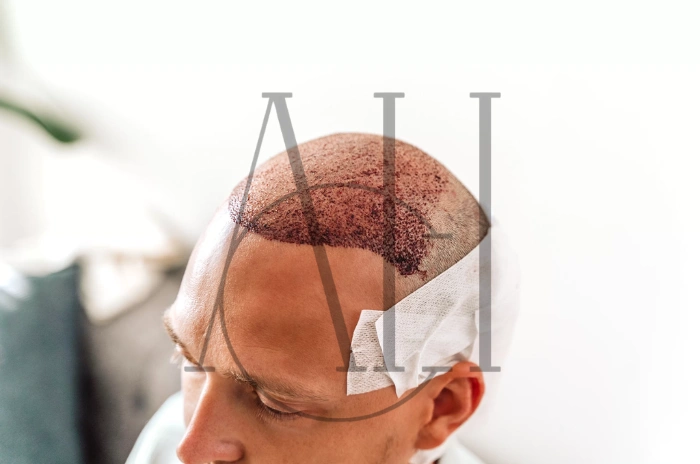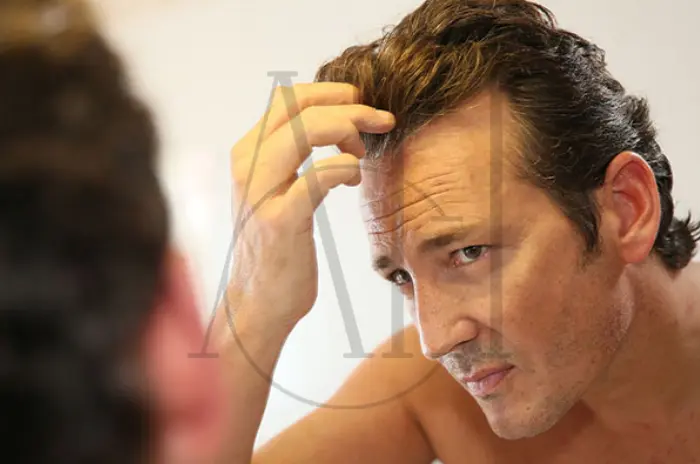Does creatine cause hair loss? It’s a question that’s been circulating among people who use creatine supplementation for muscle gains and enhanced exercise performance. Some users worry that it may increase DHT levels, a hormone associated with male pattern baldness and hair follicle health. This article explores the science, what researchers say, and whether creatine truly has an effect on your hair.
Table of Contents
ToggleWhat Is Creatine?
Creatine is also synthesized in the liver, kidneys, and pancreas from amino acids like arginine and glycine. It plays a critical role in energy metabolism, particularly during high-intensity physical activity.
Creatine is a naturally occurring compound found in the body, particularly in muscle cells. It’s also found in certain protein-rich foods like red meat and fish. Widely used as a supplement, it helps boost strength, power, and endurance during exercise.
-
Stored in muscles as phosphocreatine
-
Helps produce ATP, the body’s energy currency
-
Popular among athletes and bodybuilders
Creatine and Its Effect on Hormones
Creatine’s impact on hormonal pathways is still being explored in clinical trials. Current data suggest that while it may increase DHT, the response is not consistent across all users.
The core concern linking creatine and hair loss stems from its impact on hormones, particularly DHT (dihydrotestosterone).
-
Creatine supplementation may increase DHT levels, a more potent form of testosterone
-
DHT is a known contributor to hair loss, especially male pattern baldness
-
However, the hormonal response may vary between individuals
What Does Research Say?
Some experts argue that the rise in DHT levels might not be clinically relevant. Critics also highlight that the participants’ hair status was not evaluated, making the information incomplete.
The most cited study linking creatine cause hair loss is a 2009 trial involving rugby players:
-
Participants took creatine for 3 weeks
-
Results showed a 40% increase in DHT levels
-
Testosterone levels remained stable
But:
-
The study had a small sample size
-
No follow-up on actual hair loss was conducted
-
Findings have not been replicated or verified by large-scale studies
Can Creatine Cause Hair Loss?
In individuals without a genetic predisposition, creatine is unlikely to cause noticeable hair loss. For those with DHT sensitivity, the risk might be higher but still not definitively proven.
There is no direct scientific proof that creatine causes hair loss. However:
-
Increased DHT may contribute to hair follicle miniaturization in genetically predisposed individuals
-
This could potentially accelerate hair loss in men susceptible to pattern baldness
-
For others, it may have no effect at all
Who Might Be at Risk?
Athletes who combine creatine supplementation with other testosterone-boosting regimens may be at elevated risk. Age can also be a contributing factor, with younger users potentially more sensitive to hormonal changes.
-
Men with a family history of male pattern baldness
-
Those already noticing hair thinning
-
Individuals with high DHT sensitivity
For these groups, monitoring hair health during creatine use may be wise.
Female Pattern Baldness and Creatine
Most studies on creatine and hair loss focus on men, leaving a knowledge gap regarding women. Future research is needed to determine whether female pattern baldness can be affected by creatine.
What about women?
-
Female pattern baldness is less influenced by DHT than in men
-
No strong evidence links creatine supplementation to hair loss in women
-
Hormonal differences and treatment approaches differ
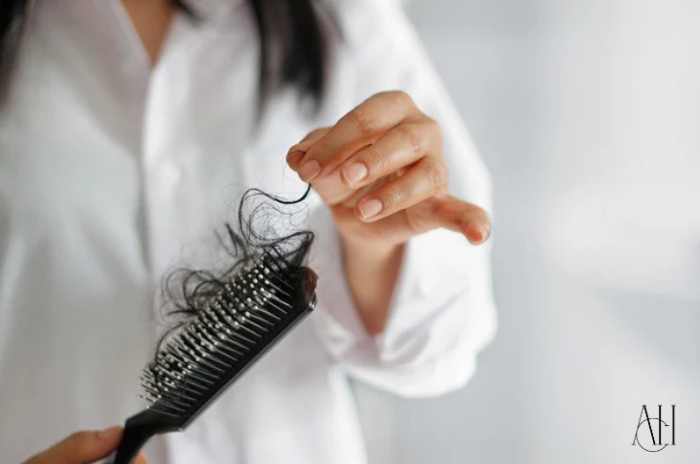
Understanding DHT: The Link to Hair Loss
DHT is essential for body hair development but detrimental for scalp hair in predisposed individuals. Blocking or reducing DHT levels has become a cornerstone in hair loss treatment strategies.
-
DHT shrinks hair follicles, shortening the growth cycle
-
Inherited DHT sensitivity leads to male pattern baldness
-
Blocking DHT (e.g., with finasteride) is a common treatment
If creatine increases DHT, even temporarily, it could influence hair loss in sensitive individuals.
Creatine and Testosterone
Some athletes believe creatine boosts testosterone, leading to enhanced muscle mass. However, available research does not consistently support a direct correlation.
Another myth is that creatine significantly boosts testosterone. But studies show:
-
No consistent increase in testosterone levels
-
Main hormonal concern is DHT conversion
-
DHT increase is not guaranteed in every body
Side Effects of Creatine
When used within recommended dosages, creatine is generally safe for healthy individuals. However, those with pre-existing kidney issues should consult a doctor before use.
Besides the hair question, known side effects of creatine include:
-
Water retention
-
Muscle cramping
-
Gastrointestinal discomfort
-
Possible liver/kidney stress with long-term use
These are usually mild and dose-dependent.
Tips to Use Creatine Safely
Cycling on and off creatine periodically may help reduce the risk of hormonal imbalances. Tracking your response can help you determine whether it’s suitable long term.
-
Use 3–5g daily for maintenance
-
Stay hydrated
-
Avoid overuse
-
Monitor hair and health if you’re at risk for hair loss
Duration and Long-Term Use
Some athletes have used creatine for over a decade with no documented hair concerns. However, individual differences in hormone metabolism make it important to monitor personal changes.
Does long-term use of creatine increase the risk of hair loss?
-
There’s no clear evidence
-
No long-term trials assessing hair follicle health over years
-
Personal risk factors play a major role
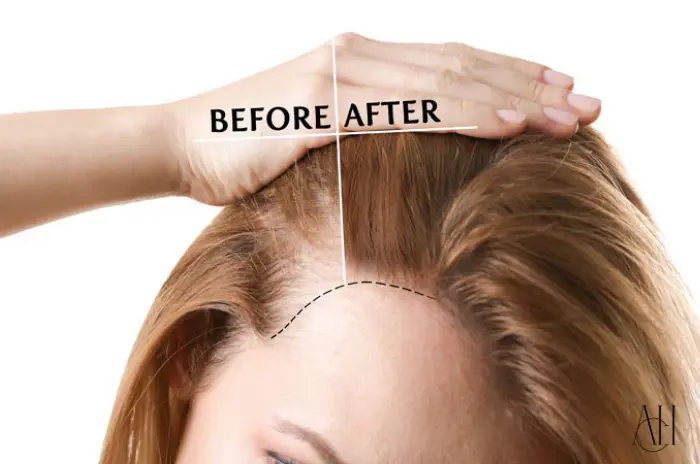
Creatine Alternatives That Don’t Affect Hair
These options support muscle performance without affecting hormonal pathways. They’re often recommended for those concerned with hair loss but seeking workout enhancements.
-
Beta-Alanine
-
L-Citrulline
-
BCAAs
These supplements support performance without altering DHT levels.
What to Do if You Experience Hair Loss from Creatine
Documenting the onset and pattern of hair loss can help determine if creatine is the cause. Temporary discontinuation may provide clarity before considering long-term changes.
-
Stop creatine supplementation and monitor shedding
-
Consult a dermatologist for scalp exam and hormone testing
-
Consider hair loss treatments like minoxidil or finasteride
Hair Loss Treatment Options
Combining treatments often yields better results, especially in early stages of thinning. Consulting a dermatologist or trichologist can provide a personalized approach.
If you do notice thinning, here are your options:
-
Minoxidil: Boosts blood flow and hair growth
-
Finasteride: Reduces DHT levels
-
PRP therapy: Injects platelets to stimulate hair follicles
-
Hair transplant: Surgical option for permanent results
Summary Table: Creatine and Hair Loss Risk
| Factor | Impact on Hair |
|---|---|
| Creatine Itself | No direct proof of causing hair loss |
| DHT Level Increase | Possible in some users |
| Genetics | Major role in susceptibility |
| Female Hair Loss Risk | Minimal or unproven |
| Testosterone Level Impact | Generally unaffected |
FAQ for Does Creatine Cause Hair Loss What Research Says
Does creatine cause hair loss?
There is no conclusive evidence, but it may elevate DHT in some people, potentially impacting hair follicles.
How does creatine affect DHT levels?
Some studies show creatine can increase DHT levels, but results are not consistent or conclusive.
Is hair loss from creatine permanent?
If caused by DHT, it may be reversible with early treatment, especially with medications like finasteride.
What are the side effects of creatine?
Mild effects like water retention, cramps, and stomach upset. Hair loss is unproven but monitored.
Can I prevent hair loss while taking creatine?
Monitor your hair, consider using DHT blockers, and maintain a balanced health regimen.
Are there alternatives to creatine that don’t affect hair?
Yes, such as beta-alanine, BCAAs, and L-citrulline.
Do other performance enhancers cause hair loss?
Steroids and some testosterone boosters can significantly impact hair loss via hormonal changes.
What hair loss treatments are available if I experience shedding?
Options include minoxidil, finasteride, PRP, or hair transplant depending on the severity.

